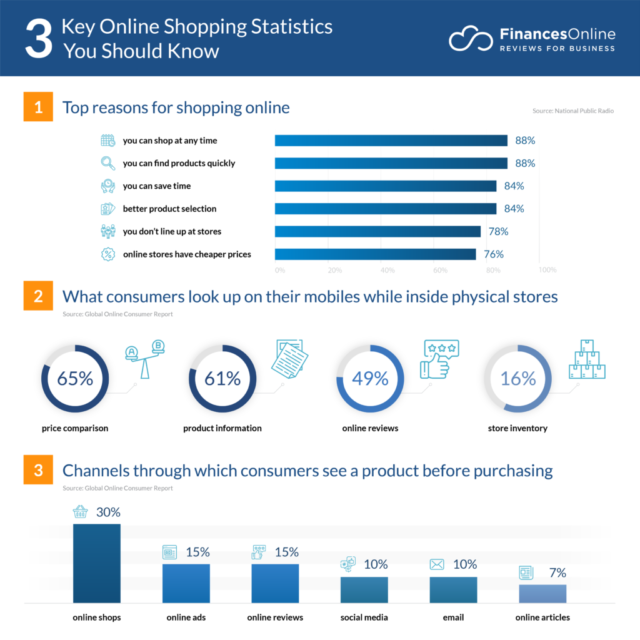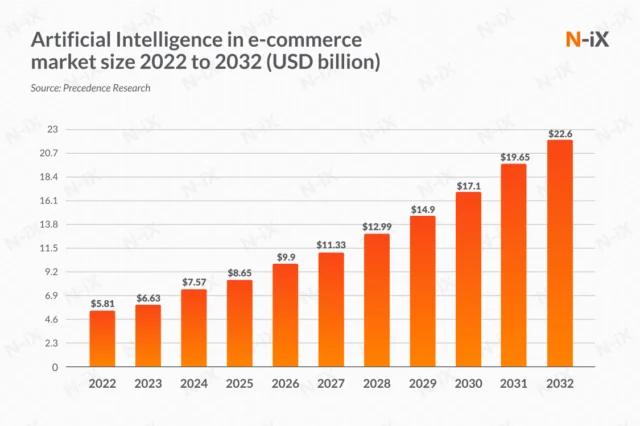The e-commerce industry has shown remarkable resilience and growth over the past few years. In 2024, global e-commerce sales are expected to surpass $6.35 trillion, with a CAGR of 11.51% projected through 2027.
The increasing adoption of technology, improved website performance, and enhanced customer experiences have driven the growth of both established giants and emerging startups. Companies that prioritize mobile commerce, AI-driven personalization, and sustainability are positioned to thrive in this competitive landscape.

Emerging Trends in E-Commerce for 2024
Several key trends are shaping the e-commerce industry in 2024:
- Mobile Commerce (M-Commerce): With mobile devices accounting for 71% of online traffic and 61% of orders, optimizing for mobile has become crucial.
Businesses are investing heavily in mobile-friendly interfaces, ensuring seamless browsing and purchasing experiences across devices.
- AI and Personalization: AI is helping brands create hyper-personalized shopping experiences, recommending products based on user behavior and preferences. Retailers like Amazon and Sephora use AI to optimize search, inventory, and customer engagement, enhancing user experiences and driving sales.

- Omnichannel Retailing: Consumers expect a seamless experience across online and physical stores. Leading brands like Walmart and Target have integrated their physical and digital operations, allowing customers to switch effortlessly between shopping in-store and online.
- Sustainability and Ethical Practices: With more environmentally conscious consumers, brands are focusing on sustainable packaging, eco-friendly products, and carbon-neutral shipping options. Companies like Patagonia and Allbirds are leading the charge by embedding sustainability into their business models.
Notable E-Commerce Success Stories
- Shopify: In 2023, Shopify raised $1.5 billion to expand its platform capabilities, focusing on AI-powered tools, mobile app enhancements, and payment integration. Shopify’s growth has been driven by helping small businesses build their e-commerce presence with easy-to-use platforms.
- Revolve: The fashion retailer successfully raised $500 million in 2023, fueled by its investment in AI-driven personalization and mobile-first strategies. Their highly responsive mobile platform offers personalized recommendations based on browsing history, which has improved engagement and conversion rates.
- Shein: Known for its fast-fashion dominance, Shein raised $2 billion in 2023, largely due to its focus on supply chain optimization and social commerce strategies. By leveraging AI to predict fashion trends and optimize inventory, Shein has shortened the time from design to delivery, maintaining its competitive edge.
Key Technologies Driving E-Commerce Growth
- AI and Machine Learning: AI enhances customer experiences through personalized recommendations, predictive analytics for inventory management, and dynamic pricing models. E-commerce platforms like Amazon and Walmart are using AI to improve efficiency and drive sales.
- Chatbots and Virtual Assistants: AI-powered chatbots are revolutionizing customer service, offering 24/7 support and resolving customer queries in real-time. Retailers like H&M and Sephora use chatbots to assist shoppers, improving customer satisfaction and retention.
- Augmented Reality (AR) and Virtual Reality (VR): AR and VR are helping customers visualize products before purchasing. For example, IKEA’s AR app allows users to visualize furniture in their homes, improving customer confidence and reducing return rates.
- Headless Commerce: As businesses focus on omnichannel experiences, headless commerce architecture has gained popularity. This allows e-commerce platforms to decouple the front-end and back-end, enabling businesses to deliver consistent experiences across web, mobile, and in-store environments.
The Future of AI in E-Commerce
AI is becoming increasingly integral to e-commerce operations, enabling businesses to automate processes, enhance customer experiences, and boost operational efficiency. In 2024, AI is expected to drive innovations such as:
- Predictive Analytics for Inventory Management: AI can forecast demand, helping retailers maintain optimal stock levels and reduce overstocking or stockouts.
- Voice Commerce: With the rise of smart speakers and voice assistants, voice-activated shopping is expected to grow, allowing consumers to search and purchase products via voice commands.
- Fraud Detection and Prevention: AI algorithms help detect fraudulent activities by monitoring transactions in real-time, safeguarding both consumers and businesses from cyber threats.
Conclusion
The e-commerce industry is poised for exponential growth in 2024, driven by technological advancements such as AI, mobile optimization, and omnichannel strategies. Companies that adapt to these trends and invest in cutting-edge technology will continue to succeed in this ever-evolving space. Cosnet Global is at the forefront of this revolution, offering tailored digital solutions that enable businesses to stay competitive in the dynamic e-commerce market.



